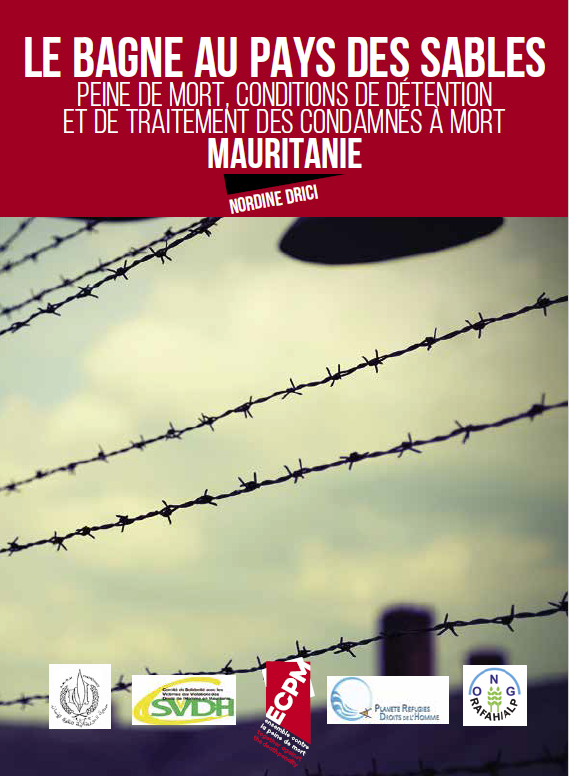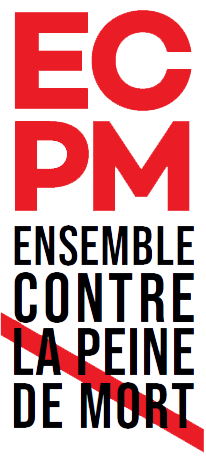10
MOHAMED CHEICK MKHAITIR
MAURITANIE
En vertu de la Constitution mauritanienne, l’État garantit « l’inviolabilité de la personne humaine ». En avril 2018, une modification législative a rendu obligatoire la peine de mort en cas de « propos blasphématoires » et d’« actes sacrilèges » (Article 306 du Code pénal). L’adoption d’un tel texte constitue un véritable retour en arrière pour ce pays qui, pourtant, n’a procédé à aucune exécution depuis 1987 et même ratifié de nombreux traités internationaux concernant les droits humains. Au moins 123 personnes condamnées à mort sont actuellement détenues en Mauritanie. (www.hitc.com) La majorité d’entre elles sont détenues dans des prisons très éloignées de la capitale et ne voient quasiment jamais ni leur avocat, ni leur famille. La Mauritanie est également l’un des 12 États dont la législation prévoit encore la condamnation à mort pour homosexualité. Le Mauritanie ainsi que les autres États du Maghreb que sont l’Algérie, le Maroc et la Tunisie sont tous en moratoire de facto depuis plusieurs dizaines d’années. Ces dernières années cependant, les contextes politiques et sécuritaires ont freiné les progrès, et notamment l’adoption de réformes législatives. Toutefois, des acteurs locaux (parlementaires, institutions nationales des droits de l’homme, coalitions nationales contre la peine de mort, avocats, etc.) demeurent fortement mobilisés pour l’abolition de la peine de mort.
Une grande partie des incriminations passibles de la peine de mort dans la loi mauritanienne reposent expressément sur la loi du talion appelée qisas, la victime (ou la famille de la victime) ayant droit à une rétribution « équivalente » au dommage subi, l’expression même de la vengeance plus que de la justice. Cette soif de vengeance caractérise également l’histoire de Mohamed Mkhaitir. L’affaire a suscité de vives réactions au sein de la population mauritanienne. La sentence prononcée à l’encontre du blogueur, qui dénonçait par ailleurs les violations des droits humains au sein de la société mauritanienne ne répondait pas à une justice à la hauteur d’un État de droit. La peine de mort perpétue un cycle de violence inouïe au sein des sociétés qui la pratiquent encore. C’est ainsi que plusieurs défenseurs des droits humains dont Mekfoula Brahim ont reçu des menaces de mort pour le simple fait d’avoir réclamé l’annulation de la condamnation à mort de Mohamed Mkhaïtir.
livre

Le bagne au pays des sables. Peine de mort, conditions de détention et de traitement des condamnés à mort en Mauritanie
Auteur : Nordine Drici
Éditeur : ECPM
Date de parution : 2019
Nombre de pages : 137
Ce rapport est issu d’une mission d’enquête réalisée en Mauritanie entre décembre 2017 et décembre 2018 par Nordine Drici au nom d’ECPM, de Planète réfugiés – Droits de l’homme (PRDH), de l’Association mauritanienne des droits de l’homme (AMDH), de Rafah et du Comité de solidarité avec les victimes de violations des droits de l’homme (CSVVDH). Il vise à analyser le contexte et le cadre juridique de l’application de la peine de mort en Mauritanie et à donner un aperçu des conditions de détention des condamnés à mort dans ce pays.
Malheureusement, le coordinateur et les enquêteurs n’ont pu se rendre à la prison de Bir Moghreïn. Or, c’est justement dans cette prison, située à plus de mille kilomètres de la capitale, que se trouve la grande majorité des détenus condamnés à mort. Non exhaustive, cette étude permet néanmoins de révéler au grand jour la diversité des problèmes que soulève l’application de la peine de mort et le quotidien des détenus condamnés à mort en Mauritanie.
Ce rapport s’inscrit dans le cadre de la collection « Missions d’enquête » qui a pour objectif de faire un état des lieux des conditions de vie des condamnés en attente de leur exécution dans différents pays du monde. L’objectif est de rendre compte de la réalité de l’application de la peine de mort pour interpeller
l’opinion publique et appuyer le plaidoyer auprès des autorités nationales et de la communauté internationale.
film

Pakistan : le blasphème ou la mort
Réalisé par Mohammed Ali Naqvi
Pays d’origine : Royaume-Uni
Durée : 74 minutes
Sortie : 2020
Au Pakistan, quiconque est accusé de blasphème encourt la peine de mort. Alors que les militants pour les droits civiques réclament depuis des années la révision de cette loi adoptée en 1986, Khadim Hussain Rizvi, fondateur du parti intégriste islamiste Tehreek-e-Labbaik, a orchestré une campagne violente pour lui afficher son soutien. Il incite ses millions de sympathisants à attaquer eux-mêmes les personnes accusées de blasphème. Asia Bibi, une paysanne chrétienne condamnée à mort pour blasphème en 2010, après avoir été accusée d’avoir bu dans le même gobelet que des femmes musulmanes de son village, est ainsi devenue l’un des symboles de cette radicalisation violente. Après avoir vu sa peine confirmée en appel, elle a finalement été acquittée par la Cour suprême en 2018…
podcast


